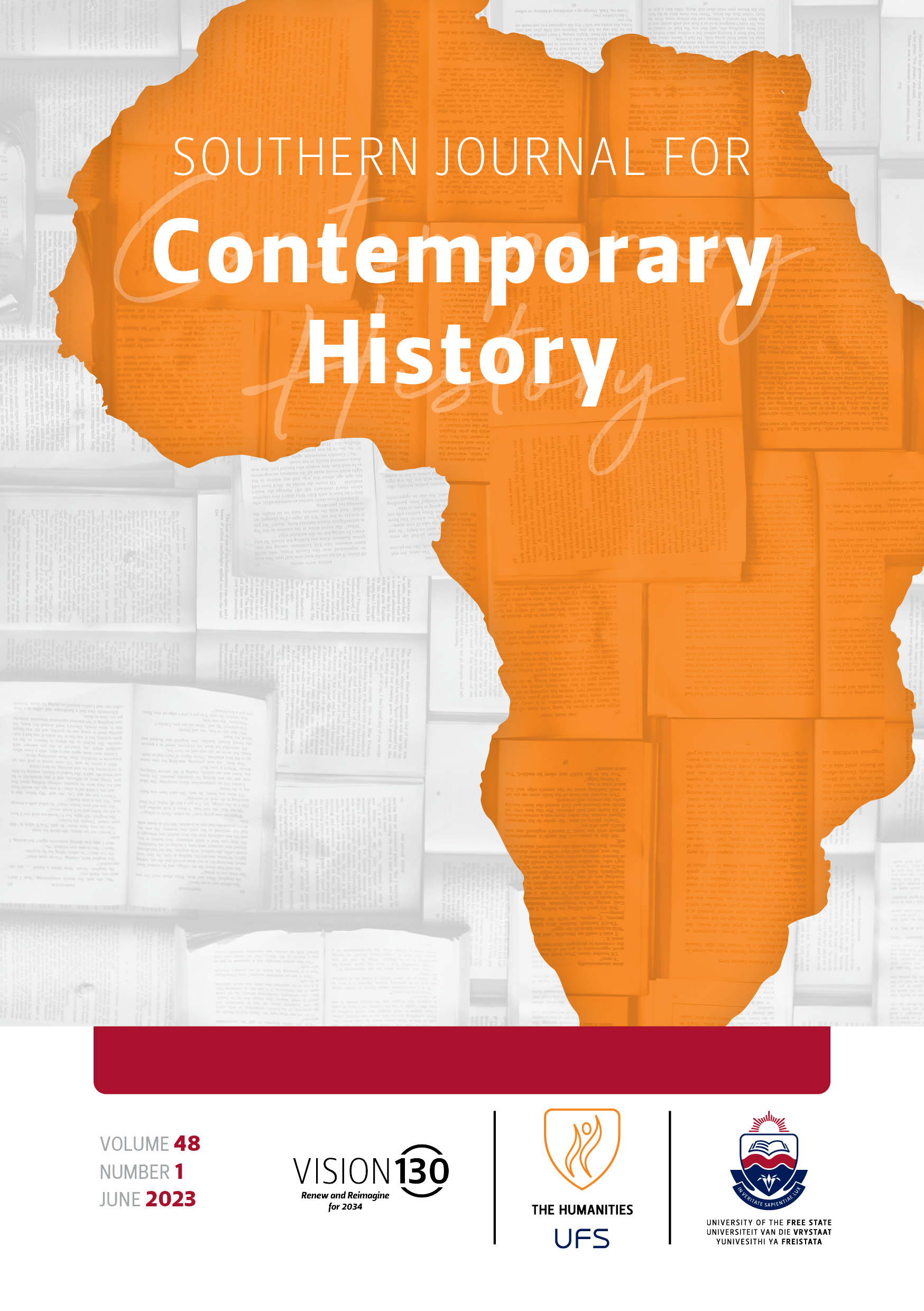Land shortage and the adoption of cross-border farming by the Ndau people of Zimbabwe along the Zimbabwe/Mozambique borderland (c.1930- 2010)
DOI:
https://doi.org/10.38140/sjch.v48i1.7302Keywords:
borderland, conflict, farming, settlement, Mozambique, Zimbabwe, sesame.Abstract
This study focuses on cross-border farming, a practice which has been adopted by the Ndau communities of South-eastern Zimbabwe to reduce hunger and starvation caused by the shortage of land in the Ndau dominated Zimbabwe/Mozambique borderland. While the colonial Rhodesian government seized land from the Ndau people, the post-independence Zimbabwean government, aggravated the Ndau people’s agrarian plight by annexing formerly white-owned farms during the Fast Track Land Reform Programme (FTLRP) in 2000 without properly returning the land to its original owners. The colonial farms had become a source of employment for the landless Ndau men and women. Consequently, following their forced removal during the FTLRP, some of the Ndau communities from Zimbabwe have resorted to cross-border search for land in neighbouring Mozambique. The core of the article’s argument is the claim that cross-border farming has saved the Zimbabwean Ndau people from hunger and starvation. The paper was written using archival documents alongside secondary literature and qualitative research involving semi-structured interviews.
Downloads
##submission.downloads##
Published
How to Cite
Issue
Section
License
Copyright (c) 2023 James Hlongwana

This work is licensed under a Creative Commons Attribution 4.0 International License.




